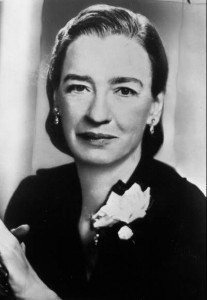 Grace Murray Hopper was born on December 9, 1906. Before she passed away on January 1, 1992, “Amazing Grace” made significant contributions to the way we use computers today. The Hour of Code, a part of Computer Science Education Week, is held in her honor each year.
Grace Murray Hopper was born on December 9, 1906. Before she passed away on January 1, 1992, “Amazing Grace” made significant contributions to the way we use computers today. The Hour of Code, a part of Computer Science Education Week, is held in her honor each year.
Grace was a pioneering American computer scientist who set milestones for many to follow. For example, she was one of the first programmers of the Harvard Mark I computer, devised by Howard H. Aiken, built at IBM and shipped to Harvard in February 1944. It began computations for the U.S. Navy Bureau of Ships in May and was officially presented to the university on August 7, 1944.
While engaged in this work, Grace developed the first compilers. Compilers are important to this day because they are responsible for translating human-readable code to machine languages that computers can understand. She conceptualized the idea of machine-independent programming languages, which led to the development of COBOL, one of the first modern programming languages. She is also credited with creating terminology still in use today, such as popularizing the term “debugging” for fixing computer glitches (inspired by an actual moth removed from the computer). Debugging is a methodical process of finding and reducing the number of bugs, or defects, in a computer program or a piece of electronic hardware, thus making it behave as expected. We use this term to this day in all kinds of contexts.
Her accomplishments are far too many to list. To honor her achievement, both as an early technologist and as a Navy Rear Admiral, the U.S. Navy destroyer USS Hopper (DDG-70) is named for her, as was the Cray XE6 “Hopper” supercomputer at NERSC. There are dozens of books written about her, too, as perhaps an expression of our collective gratitude for a woman who contributed her life’s work to the collective goal of moving humankind forward.